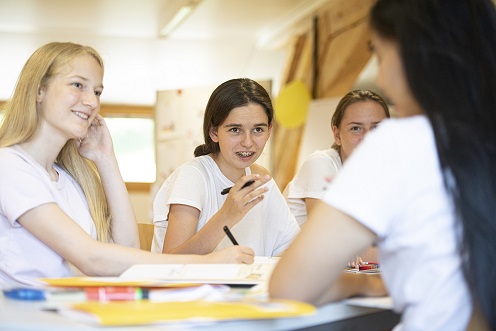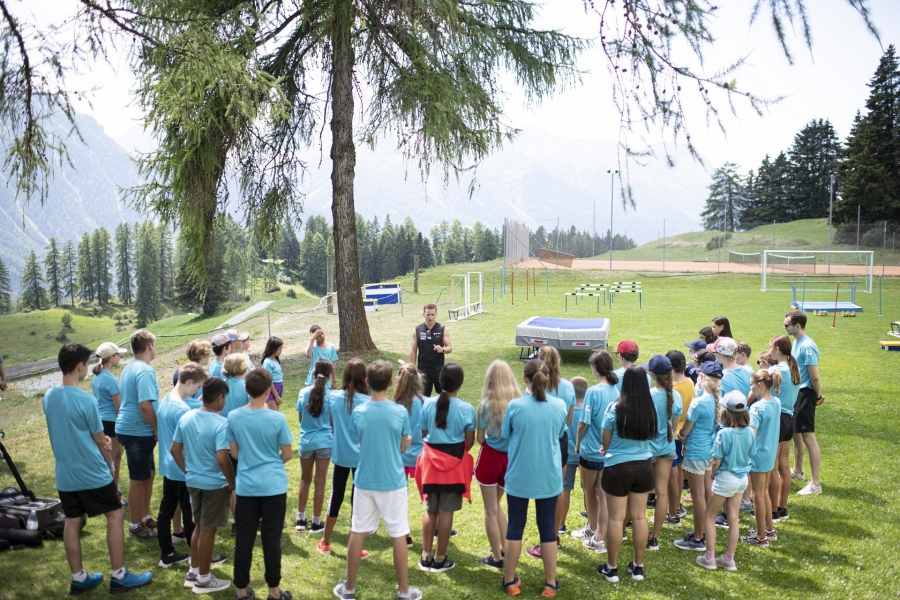TEACHERS AS COACHES
It’s only when it starts to hurt a bit that you are building strength. That’s just one of the lessons I’ve taken on board from my fitness coach. “Tell me when it hurts”, said my physiotherapist. After two accidents left me in pain and restricted in mobility, I had felt apprehension at the thought of floor exercises, the gym machines or even just lying down on the physiotherapists’ massage table (to saying nothing of getting up again). But step by gradual step, pushing forward the boundaries through a process of inquiry, reflection, subtle adjustment, experimentation, feedback and guidance, the results have started to make themselves felt. And the gym has become a space for joyful exertion.
It was my own experience and hearing coaches talking about athletes in training that set me thinking about how teachers, as coaches, can help students overcome the sometimes painful blocks which prevent from realising their potential. The cause of these blocks may lie in an unconscious feeling of inadequacy or in deeply-rooted cultural beliefs about class or ethnic identity and gender roles. Yet, tough-minded yet sensitive coaches have shown themselves capable of bringing about transformative change even in the face the most stubborn resistance.
 Sport, like theatre and dance, is performance and like any performative art, sport can unlock the imagination, open the mind and heart to revitalising mental and physical experience. A sense of being truly alive, in the moment. There are other good reasons why sports coaching should play a prominent role in schools and in teacher training. Success according to the Olympic ideal is not just about winning: to quote from the website of the Olympic Committee:
Sport, like theatre and dance, is performance and like any performative art, sport can unlock the imagination, open the mind and heart to revitalising mental and physical experience. A sense of being truly alive, in the moment. There are other good reasons why sports coaching should play a prominent role in schools and in teacher training. Success according to the Olympic ideal is not just about winning: to quote from the website of the Olympic Committee:
"Olympism is a philosophy of life, exalting and combining in a balanced whole the qualities of body, will and mind. Blending sport with culture and education, Olympism seeks to create a way of life based on the joy found in effort, the educational value of good example and respect for universal fundamental ethical principles."
THE TEACHER IS A TALENT SCOUT
As we have all heard, teaching in the 21st century has to be radically different from what many of my generation experienced. Like the coach and the athlete, the teacher and the student are involved in a collaborative process. The teacher, too, is a talent scout, a listener rather than a talker, a motivator and a critical friend who can help the student develop the self-belief to leave their comfort zone and experience the exhilaration of taking a risk and succeeding.
Here are some of the skills classroom teachers could learn from coaches: the power of observation, to look closely at how an athlete is performing, to note the smallest of factors that are preventing the athlete from becoming even better. Good coaches are experts at formative assessment in way they give precise feedback which the athlete can use to optimise their performance. The coach is an expert in teaching meta-cognitive skills: they help athletes to reflect on their performance, to observe themselves self-critically and to guide them to becoming the best athlete they can be.
Crucially, they can motivate, can help athletes develop self-belief and determination. They convey to the athlete the conviction that they can do better, that they can pick themselves up and learn from failure or defeat. Coaches can get athletes back on track after injury or serious setbacks. Coaches can help athletes set goals which are within their reach provided they patiently stick at it and open themselves to new approaches.
You don’t become a world success overnight. You take it one small step at a time. But you can’t do it on your own. You need your coach, especially when it hurts.
Peter Pasquill
IBDP Coordinator
